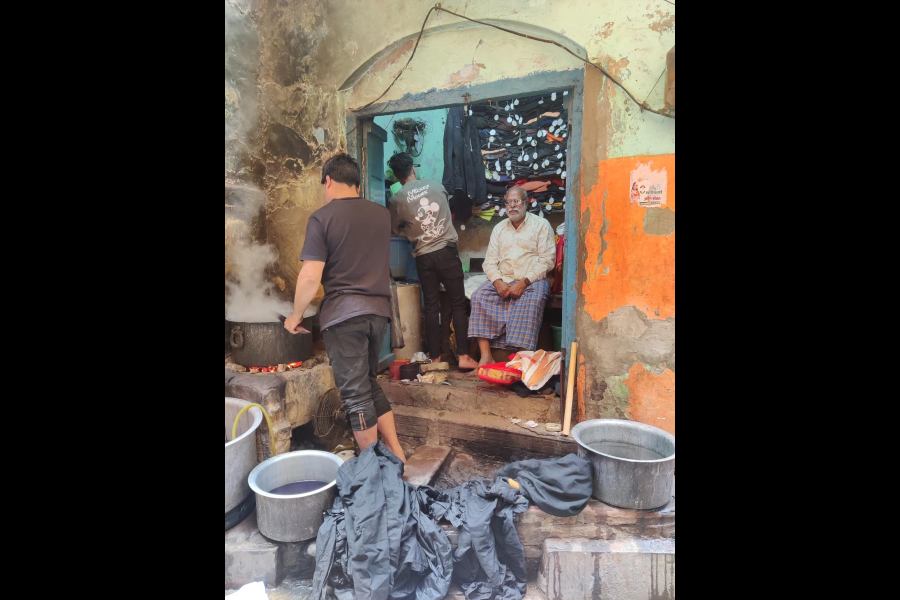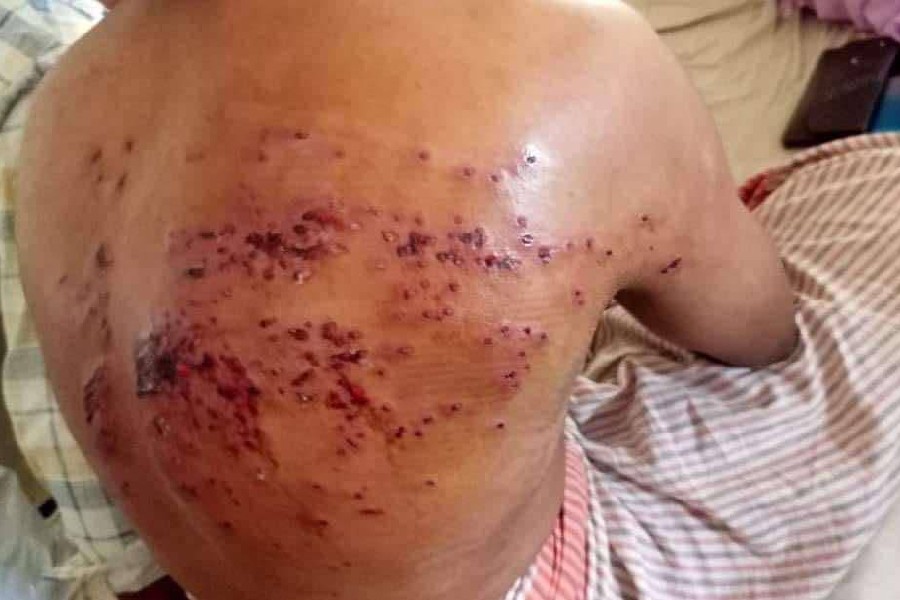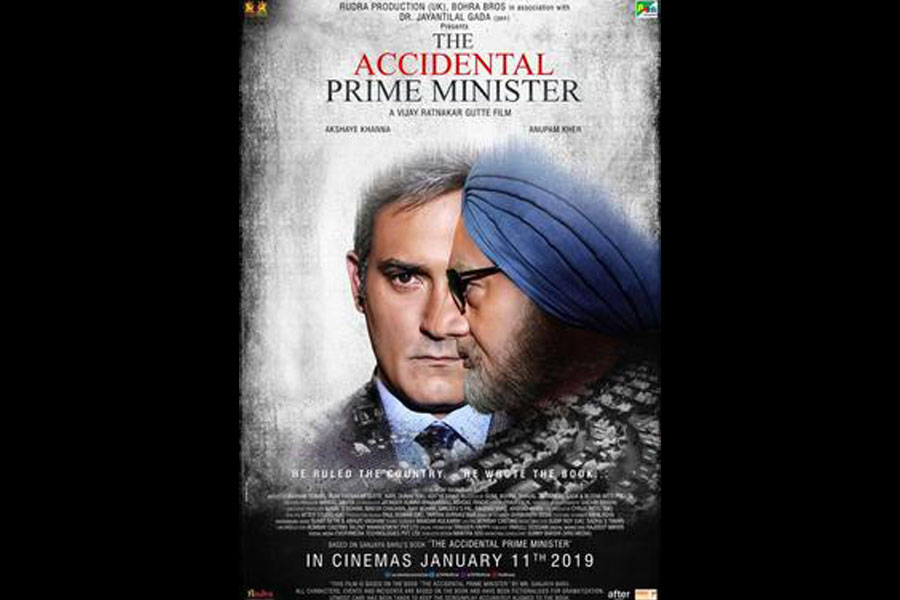Roshan Ali Rangrez, 65, wasn’t waiting for Rahul Gandhi. His late father, Banarasi Ali Rangrez, used to wait for Rajiv Gandhi. So did his grandfather Ghiga Chaudhary, for Indira Gandhi.
So, why doesn’t Roshan wait for Rahul? The rangrez — a word that means “dyer” and has now stuck to the family name — smiles. “I avoid any overt show of political affiliation but my father was very vocal for the Congress.”
He has to be pressed to be more forthcoming. “Indira Gandhi met my grandfather whenever she visited Varanasi,” he says, sitting in his 6ftx6ft dyeing shop in Chapariya Gali, barely 20 metres from Gate No. 4 of the Kashi Vishwanath temple.
He doesn’t know how Indira came to know Ghiga but says, correctly, that the family is “famous” across the region for its skill at dyeing clothes. Roshan has no pictures to prove his claim but old-timers confirmed that Indira and Rajiv used to meet many ordinary people, dropping by their homes and workplaces without much security.
“Rajiv would come to see my father in the shop whenever he visited Varanasi. My grandfather and father were Congress voters and commanded respect as rangrez,” Roshan says.
“Indira and Rajiv understood this. Like his mother, Rajiv was connected to his roots and knew how to nurture relationships.”
The Telegraph spoke to Roshan on Friday, a day before Rahul’s Nyay Yatra was to reach Varanasi.
“Rahul is coming here but he is possibly unaware how his grandmother and father loved us, without any reason. He doesn’t meet me when he visits Varanasi, so I don’t wait for him,” Roshan said.
Rahul arrived in Varanasi on Saturday morning, prayed at the Kashi Vishwanath Temple and left in the afternoon. Roshan remained busy at work, preparing dye in hot water over a hearth and dyeing clothes.
He specialises in dyeing dhotis in saffron and yellow and earns about Rs 500 a day. He claims to be the lone surviving rangrez who knows how deep the saffron of the dhoti should be for which Hindu religious ritual.
“I get Rs 18 per piece of clothing and Rs 20 for a dhoti. We are happy with this and don’t need more,” he says.
Grandfather Ghiga was from Sikar, Rajasthan, he says. One day, Ghiga just got up and began walking east and reached Mirzapur in Uttar Pradesh. He opened a dyeing unit but spent most of his time in social work.
Roshan says: “I remain a Congress voter but I’m not sure about my two sons and two daughters. I offer namaz occasionally, but my sons do it every Friday at the Biwi Razia Masjid.”
Why not at the Gyanvapi Masjid, a stone’s throw from where they live?
A shadow crosses Roshan’s face. “You need to look at recent developments to understand how dirty politics can be. I don’t know my children’s political leanings but I’m happy they stay away from controversy,” he says.
The mosque is the subject of a legal battle between Hindu and Muslim groups. The district court recently opened the mosque’s basement for Hindu priests to worship idols.











